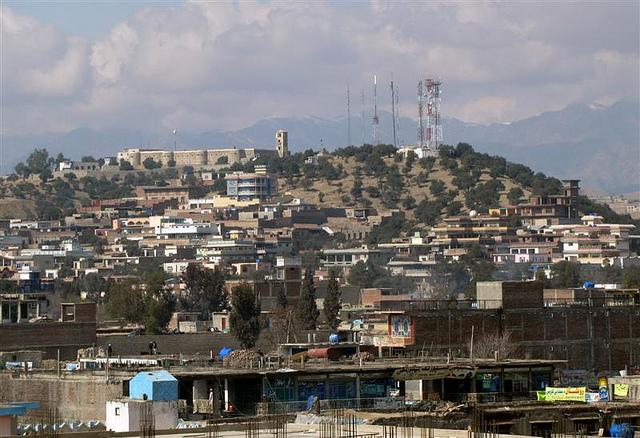KHOST CITY (PAN): People in the southeastern province of Khost complain that some Imams – Islamic prayer leaders – will not perform prayers at the funerals of dead Afghan soldiers and police.
The phenomenon is commonplace in Tani, Bak, Alisher, Sabari and some other remote areas, said Maulvi Council, or council of Islamic scholars.
Some of the Imams refuse to pray during the funeral ceremonies of Afghan National Army soldiers, Afghan police, and combined forces, a former Tani district chief and tribal elder, Hakim Wali, told Pajhwok Afghan News.
That latter category – combined forces – are not employees of the Afghan government, but maintain security for the bases of foreign forces and outposts along the Durand line.
“It is a big insult to our soldiers who sacrificed themselves in defence of their country. The Imams won’t pray for the dead soldiers even though they also have jobs in the government and receive government salaries,” said Wali.
He says the government should pressure these Imams to participate in the funeral ceremonies of the fallen soldiers and perform prayers for them according to Islamic tradition because they were killed for the defence of the country.
A resident of the Tarwo Awbo area, Wali Gul, said that last year, one of the men from his village was among five policemen killed in a roadside bombing in the Alisher district.
The village Imam disappeared during the funeral ceremony, and a relative of the victim had to lead the prayers for the dead body. That was dishonorable for the family of the soldier, he said.
A resident of Narizi village in Tani district, Noor Wali, said that when two guards of the combined force from his village were killed recently during a clash with the Taliban, none of the Imams prayed for them.
Later, a government-supported Imam came from Khost city and prayed for them during the burial, he said.
Imams in some districts do not pray for the souls of the soldiers because they fear the Taliban, said Maulvi Shah Mohammad.
Religious scholars are being threatened by the government during the day, and face the same problem from the Taliban at night, he said.
Taliban spokesman Zabihullah Mujahid said that the Taliban threatens Imams for praying for those who work with the government that supports the foreigners.
An Imam from Bak district, speaking on condition of anonymity, said he had not prayed at the funeral of a local policeman who was killed by a roadside bomb because the Taliban had called him and posted a “night letter” in front of his house, warning him not pray at the funeral.
“It was a death warning, so I was obligated to leave the village in the morning and to not pray for him,” he said.
Because of these issues, such prayers are being performed inside the compounds of Afghan forces, where relatives of the victims are invited for the praying, a security official said on condition of anonymity.
A resident of Mir Sapar in Spera district, Jihad Gul, said he has witnessed this happening in his village. One of the men from his village was killed during a clash with militants while he was working with security personnel. When his body was brought to the village, his relatives immediately buried him, he said. “Family members of the soldier said that a prayer was already performed for him in a military compound,” he said.
If the government would ensure the security of the Imams, they would never refuse to pray for the souls of the dead soldiers, Maulvi Shah Mohammad said.
It is the responsibility of religious scholars to pray for the soldiers who were killed, he said, and the Ulema Council would be happy to argue with any scholars who doubted that.
Another religious scholar from Khost city, Maulvi Saidullah Ihsan, said that funeral prayers should be performed for all Muslims. The only exception to that rule, he said, was made in the 7th century during the rule of the fourth caliph, Ali, when it was determined that muggers should not receive the funeral prayer. Aside from that exception, funeral prayers should be performed for all Muslims, even criminals, he said.
When Governor Abdul Jabar Naemi was informed of the issue at a gathering in the Tani district, he said that he strongly demanded that religious scholars perform prayers for fallen Afghan soldiers according the rules of Islam.
If Imams do not obey the order, the government would deal with them according to the law, and they would be brought to justice, he said.
myn/at








GET IN TOUCH
NEWSLETTER
SUGGEST A STORY
PAJHWOK MOBILE APP